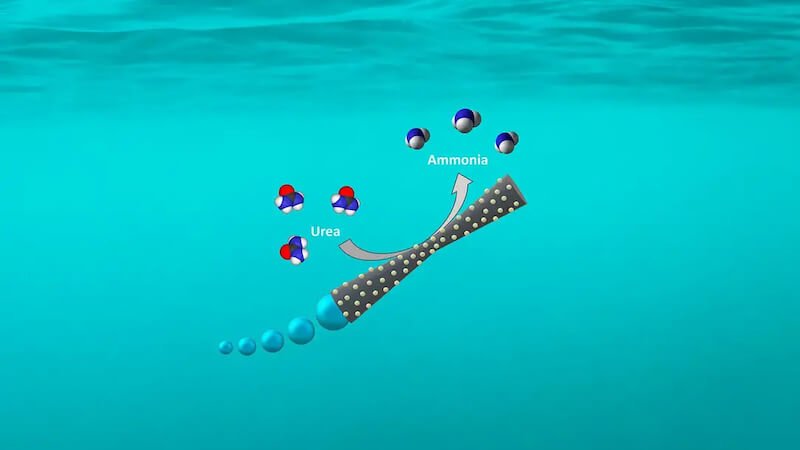
Spanish researchers have developed a miniature engine that moves independently and cleans wastewater. This creates ammonia, which can serve as a sustainable energy source.
Avoiding waste plays a major role in current measures to combat climate change. Large amounts of waste still end up in our ecosystems around the world – for example through wastewater. In many parts of the world, used industrial water ends up in local rivers and lakes.
In addition to health risks, this approach also poses a great burden on nature. Ultimately, this is how waste ends up in the oceans. Researchers from Spain therefore developed a micromotor to effectively stop pollution and produce fuel at the same time.
Miniature motor moves independently through wastewater
These micromotors offer hope for a solution to environmental problems. Because they can navigate through bodies of water autonomously and clean them. The engine itself is made of silicon and manganese dioxide. By creating small bubbles at one end of the structure, the system slowly moves forward without external help.
The enzyme laccase serves as a varnish, which is how the Spanish researchers achieved a cleaning effect. Because through a chemical process, urea turns into ammonia, which can be further converted into hydrogen after extraction from the water. But the approach currently poses some challenges.
AI model supports the analysis of the results
The bubbles produced by the micromotor make it difficult to analyze the laccase solution. Because the formation of bubbles affects the view of the structure. In order to achieve the most accurate results possible in terms of durability and efficiency, the researchers applied an AI algorithm to the problem.
This determines the data required for further development. It is still unclear when the technology can be used in sewage treatment plants or bodies of water. In order to determine the most effective approach, further investigations and adjustments to the AI model are necessary.
Also interesting:
Source: https://www.basicthinking.de/blog/2023/11/23/mikromotoren-abwasser/


